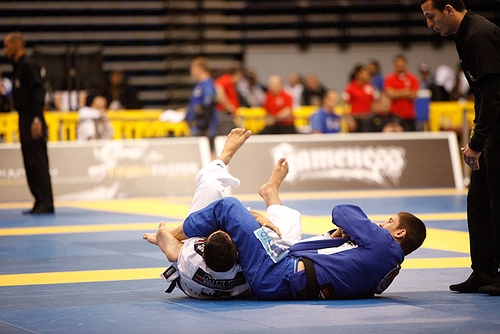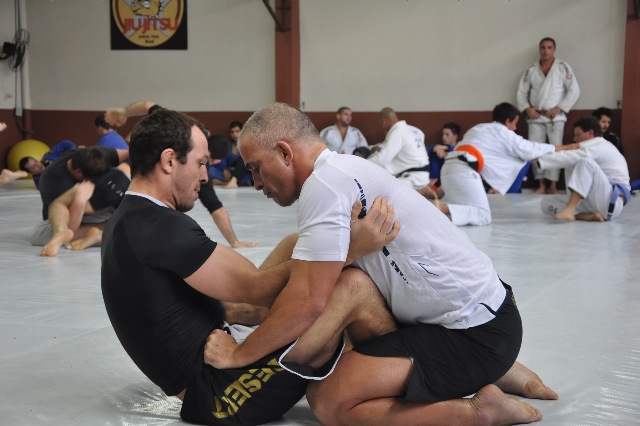Jiu-Jitsu black belt Thiago Barreto of team Brasa has been turning heads in competition around the Brazilian Northeast. Having won the WPJJC tryouts in the city of Natal and then come up runner-up at the main event in Abu Dhabi, the Brazilian wanted more and achieved it: winning the featherweight division at the 2012 Rio Open last weekend. On the mats of the Tijuca Tennis Club, Barreto’s campaign was beyond reproach. “I had four matches including the final. I managed to get the tapout in the first three and won the final by 2 to 0,” he stated.
“The first match I won via triangle within two minutes; the second I got the tapout via armbar; and in the semifinal I got a triangle from closed guard against an opponent from Tanquinho’s academy. And the final was a really tough match; we both pulled guard, and that’s where I managed to sink a figure-four on his foot. He spun out of the match area and I scored the two points that earned me the title,” added the fighter, who was making his debut in competitions sanctioned by the CBJJ, the main governing body for gentle-art events in Brazil.
“It was my first CBJJ competition, and I was blown away. It was really organized, and it was even better because I made my debut winning gold already. I also learned a lot from the competition: I have to put even more faith in my game, and having a corner as backup makes all the difference,” said the diminutive fighter, who is already looking ahead to more titles this season.
“Now, Copa Black Bull is coming up in Recife, and then there’s the São Paulo Open, but my main focus is the WPJJC tryouts here in Natal,” he declared.
The owner of an insurmountable guard, Barreto kindly shared a tip on how to efficiently sink a triangle choke. “I practice an average 200 triangles per training session. After that I work on variations of triangles to omoplatas and omoplatas to triangles. Next, I try doing triangles from every open guard, closed guard, half-guard, etc., position. When I roll, I attack with triangles against heavier and stronger opponents, because if I can catch them with them, it’ll be a lot easier on fighters who weigh what I do,” he explained.



